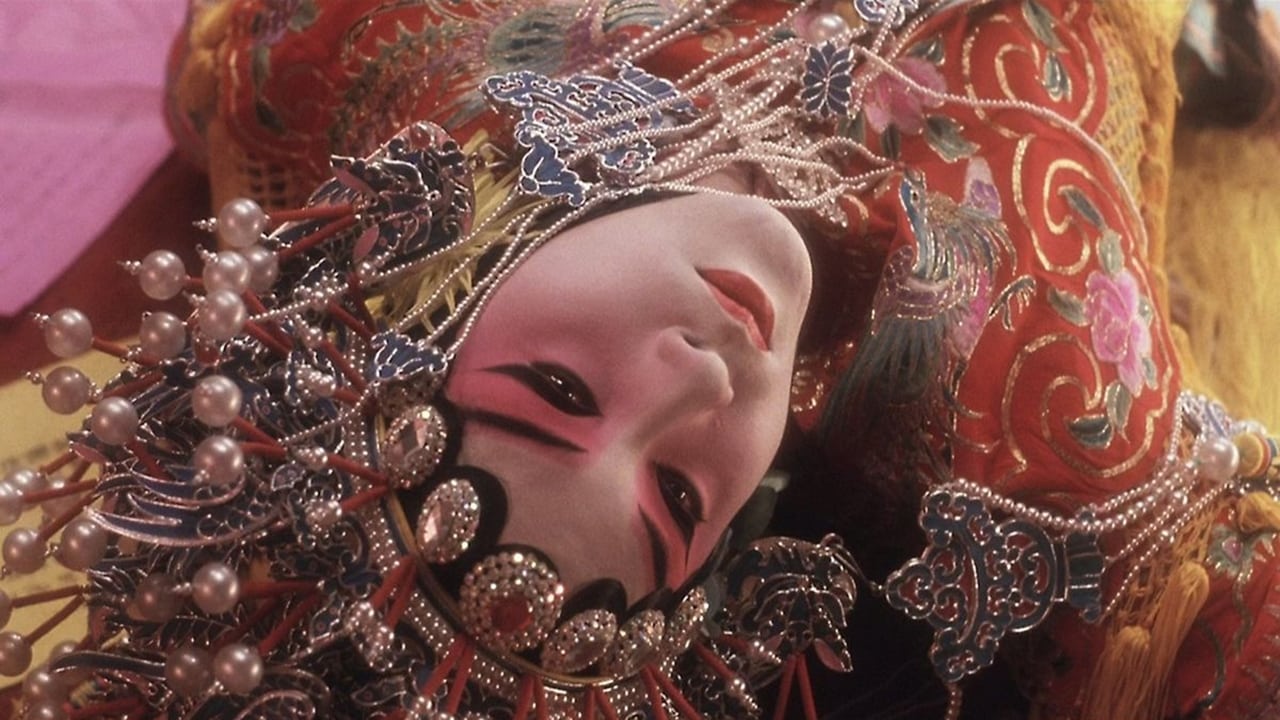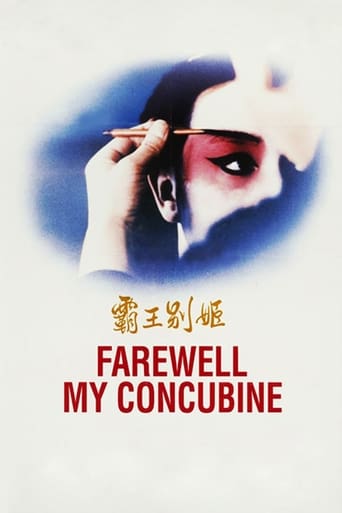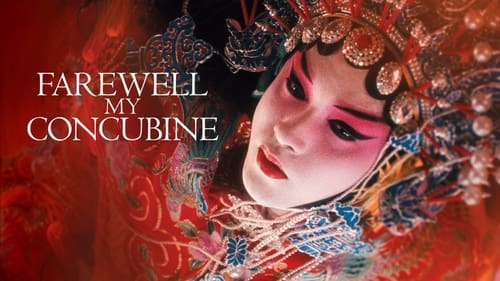



Sorry, this movie sucks
Bad Acting and worse Bad Screenplay
n my opinion it was a great movie with some interesting elements, even though having some plot holes and the ending probably was just too messy and crammed together, but still fun to watch and not your casual movie that is similar to all other ones.
View MoreIt really made me laugh, but for some moments I was tearing up because I could relate so much.
View MoreThis Chinese film is one I found in the book 1001 Movies You Must See Before You Die, I didn't know anything about it beforehand, but it was rated highly by the critics, so I hoped for something good. Basically set in the 1920s and continuing through to the aftermath of the Cultural Revolution, this is the story of how performers Douzi (Leslie Cheung) and Shitou (Fengyi Zhang) became friends and talented actors in the Beijing Opera. Later however Douzi wants to be more than friends, Shitou does not give into his advances, the situation worsens when courtesan Juxian (Li Gong) manipulates Shitou into rescuing her from a life of prostitution, and then marrying her, while Douzi is in fact homosexual. The friendship and relationship status between Douzi and Shitou goes up and down through the changing times over fifty years of Chinese history, but they remain close, but it is unclear whether they can return to the way things used to be, and the show must go on. Also starring Qi Lü as Master Guan, Da Ying as Manager, You Ge as Master Yuan, Chun Li as Xiao Si as a teenager, Han Lei as Xiao Si as an adult, Mingwei Ma as Douzi as a child, Zhi Yin as Douzi as a teenager, Yang Fei as Shitou as a child and Hailong Zhao as Shitou as a teenager. I will admit having to read the subtitles I could not follow absolutely everything going on, but the acting is certainly well done, the colourful sets and costumes certainly grab your attention, and the theatrical performances are interesting to watch, all in all I think the film is a worthwhile art house drama. Good, in my opinion! It won the BAFTA for Best Film not in the English Language, it won the Golden Globe for Best Foreign Language Film, and it was nominated the Oscars for Best Cinematography and Best Foreign Language Film. Good!
View MoreThe story of two men, who met as apprentices in the Peking Opera, and stayed friends for over fifty years.Right off the bat, I must say I do not get the high-pitched Asian singing. I say Asian and not Chinese because I know the Hmong people of Laos do the same thing, leading me to believe this is a cross-cultural thing. And not all the time, as is evidenced by the "normal" singing over the closing credits.But that aside (which could probably be resolved by my reading more), this is a strong, semi-epic story of love and song. The costumes are beautiful, and in many ways this seems more like Japanese cinema rather than Chinese, with the elaborate costumes calling to mind samurai stories and other tales.
View MoreAfter finishing watching "The Last Emperor", I found quite entertaining the way they portrayed events of modern Chinese history throughout the story of somebody's life. Since I know that movie might be a Hollywood-esque portray of those events, I looked for a movie with Chinese actors, that also developed through key events of modern Chinese history (e.g. the warlords, revolution, etc). Netflix suggested me "Farewell my concubine".This movie was definitely not my cup of tea:I found the first hour brutally violent, and hard to watch (the first 45-60 minutes). It might have been because in my opinion, the violence portray seemed to not help the development of the story.The movie felt too long, and probably since I did not like the first hour of the movie due to the fact stated above, the last hour and a half felt a bit boring (something I did not feel in "The last emperor" which was also a loooong movie).Finally. This is my own bias, since I do not like opera, the opera scenes seemed highly repetitive and the high pitch voice was hard to bear.
View MoreIn this movie based on Lilian Lee's masterpiece, Chen Kaige has mainly developed the evolution of the 'sentimental' link between two actors (one gay one) through the turbulent history of China in the 20th century, with the fall of the Empire, the Japanese occupation, the civil war, the communist victory and the Cultural Revolution. The Chinese opera "Farewell My Concubine" functions marvelously as a leitmotiv. The sentimental relationship between the two actors, and later with the lover of one of them played superbly by Gong Li, will be seriously shaken during the political earthquakes. Although 'everyone should be responsible for his own fate', everybody, if he isn't strong enough physically or psychologically, could be forced to betray his friend by false accusations, particularly during violent public interrogations. The political message of the film can be summarized by the slogan: 'Cursed are the tyrants who plunge their people into misery.'With unforgettable scenes, like the abandonment of a child by his mother, the rigorous training of the young aspirant-actors, the public political trials or the meeting of 'old friends', Chen Kaige translated perfectly in moving pictures (with sublime color grading) Lilian Lee's text.Nevertheless, Lilian Lee's book transcends all personal relationships with her sublime meditations on art, the artist, individual life, love, death and politics. One example from the book: in the ordinary world, victory and defeat, life or death are only during the time of a wink. But art and artists are not part of this world, where politics with its slogan 'kill or be killed' only sow pain, suffering and misery. Through art, the spectators escape during the spectacle for a few hours the harsh reality of life and enter into a world of dreams and deepest emotions, which are embodied in the actors (of Chinese operas). This movie is a must see for all lovers of world cinema.
View More